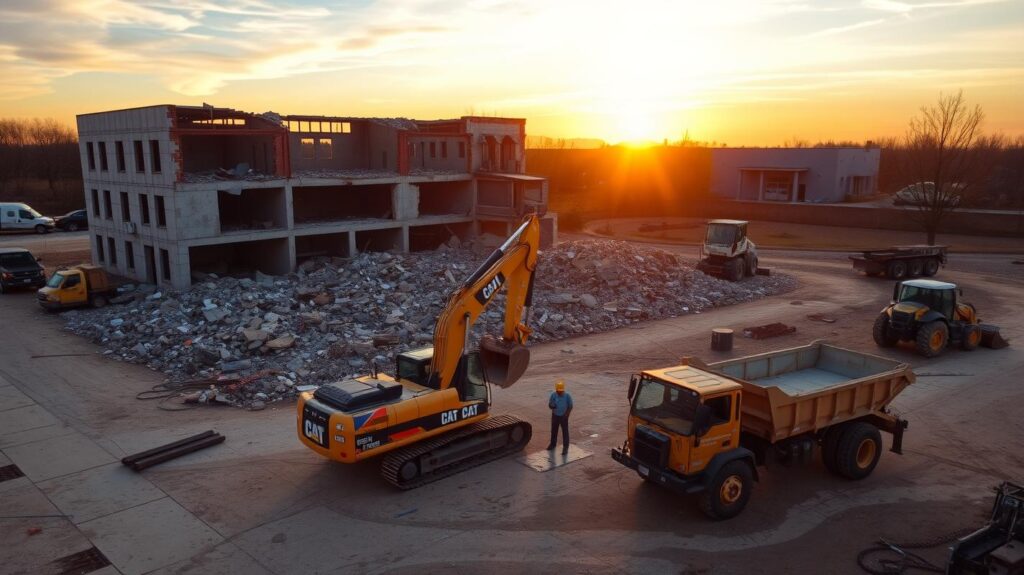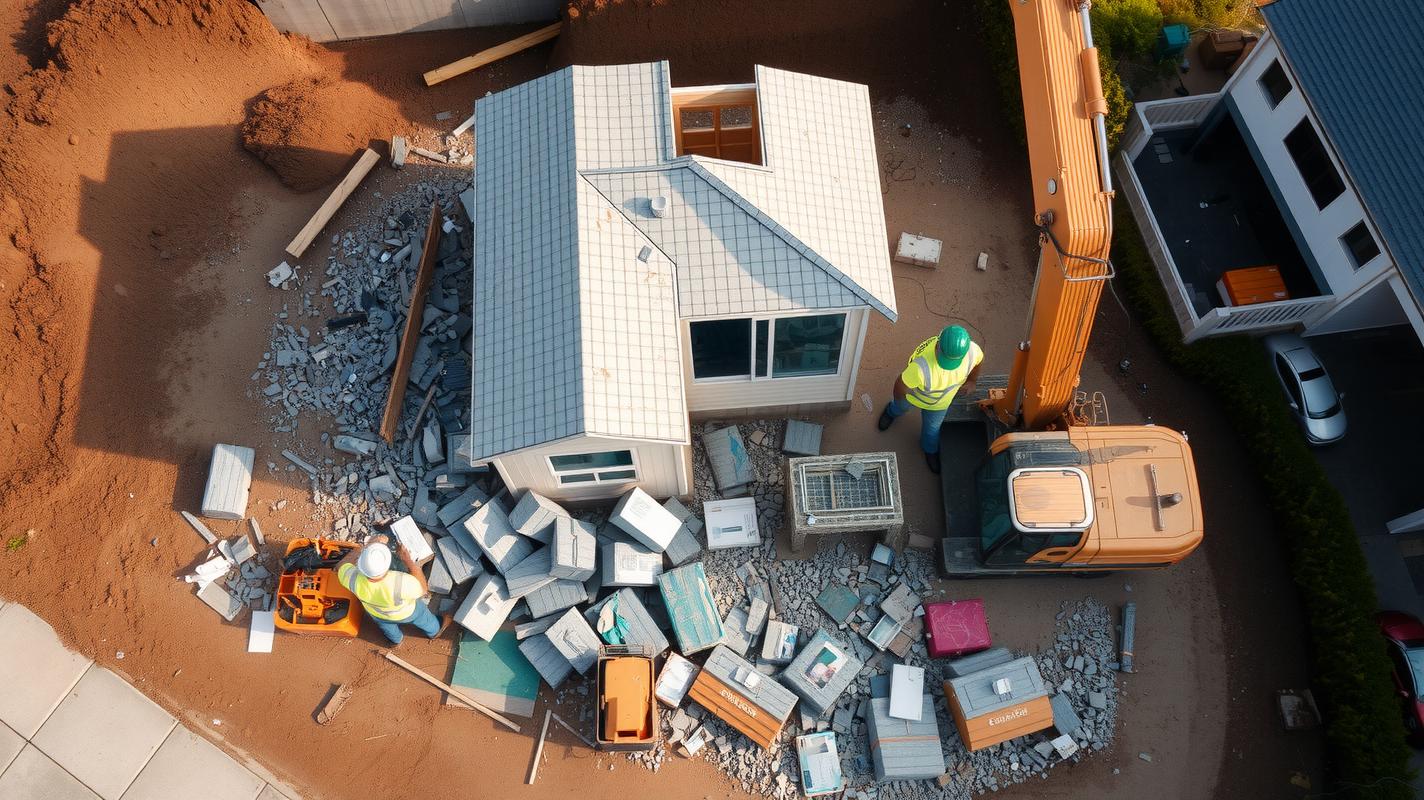Demolition is more than just the physical act of tearing down structures. It’s a complex process that requires careful planning, skilled execution, adherence to regulations, and awareness of environmental and safety concerns. In this post, we’ll explore the diverse landscape of demolition practices around the world, with a particular focus on residential demolition, house demolition, and the challenges during demolition.
North America: Technological Advancements and Strict Regulations
Demolition Techniques
In North America, the use of cutting-edge technologies like robotic demolition, controlled explosions, and hydraulic equipment is common. The emphasis on safety and efficiency has led to innovations in demolition practices, particularly in house demolition.
Demolition Regulations
Stringent regulations govern the demolition of houses and other structures, ensuring that environmental factors and public safety are considered. Permits, inspections, and adherence to safety standards are mandatory, reflecting a robust regulatory framework.
Challenges During Demolition
Despite technological advancements, challenges during demolition persist. These include managing hazardous materials like asbestos, maintaining structural integrity, and adhering to tight deadlines and budgets.
We are experienced Demolition Company based in Melbourne, Victoria that offer top-tier demolition services all around Melbourne and across Victoria, Australia.
For all your Demolition needs contact us to GET FREE QUOTE NOW!
Europe: Emphasis on Sustainability and Historical Preservation
Demolition Techniques
European demolition practices often focus on deconstruction, where materials are carefully dismantled for reuse or recycling. This sustainable approach aligns with broader environmental goals across the continent.
Demolition Regulations
Regulations in Europe are often centered around sustainability and historical preservation. The demolition of houses or other historical structures may require extensive reviews, permits, and adherence to specific conservation guidelines.
Challenges During Demolition
Challenges in Europe often stem from balancing the desire to preserve historical buildings with the need for modern development. Regulations can lead to lengthy delays and additional costs in the demolition process.

Asia: Rapid Urbanization and Varied Practices
Demolition Techniques
Asia’s varied landscape includes a mixture of traditional and modern demolition practices. The rapid urbanization in countries like China and India requires quick and efficient techniques, leading to increased utilization of controlled demolitions and heavy machinery.
Demolition Regulations
Regulations in Asia differ widely between countries and regions. In some areas, stringent rules exist, while in others, less formal oversight may be the norm. Residential demolition can be particularly complicated due to diverse legal landscapes.
Challenges During Demolition
A significant challenge in Asia is the relocation of residents during house demolition projects in densely populated areas. Additionally, ensuring safety and managing waste can be more complex due to the rapid pace of development.
Conclusion: A Diverse Landscape of Practices
The demolition practices, techniques, regulations, and challenges during demolition vary widely across different regions of the world. From the high-tech approaches in North America to the sustainable focus in Europe, and the rapid pace of development in Asia, these differences reflect broader cultural, economic, and regulatory contexts.
Understanding these global perspectives is essential for anyone involved in the demolition industry. Whether it’s residential demolition or the demolition of larger structures, recognizing regional variations can lead to more informed and responsible practices worldwide.

